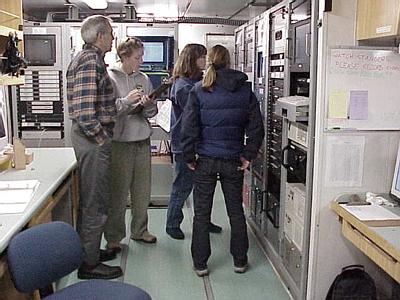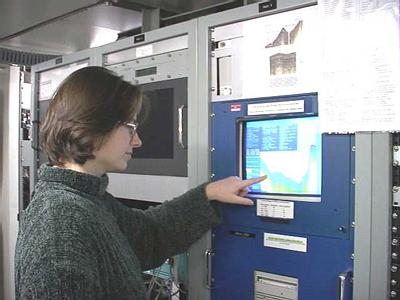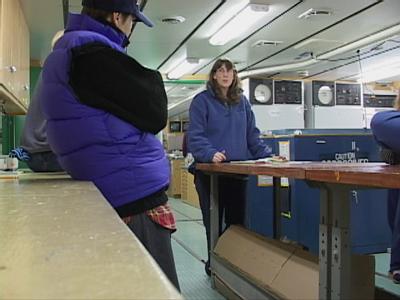
|
|
8 February, 2001
-066.16 Latitude
145.12 Longitude
Coming on Station
"Ok people, orientation meeting at twelve midnight," said Pat, our watch
chief, as we ate our lunch/dinner after shift. We had surveyed the area and
Pat had stood several times with our Principal Scientist, and others,
staring at the "Bathy 2000". The "Bathy" is a machine that looks at the
ocean floor through echoes (who, or what, else use echoes to find things?).
What's neat is that the "Bathy" shows you the ocean floor and layers of
sediment below it. These layers have accumulated from the tiny microscopic
plankton and diatoms that live in the water, and have died and drifted down
to the ocean floor. The layers are also made from silt and clay that was
carried off the continent by glaciers. It is these layers that interest us
because they tell us how "busy" the glaciers are in carrying the sediment
(what is sediment?) off the continent. They also indicate how busy the
plankton and diatoms were in the past. From this, we can tell about past
climates to see if they were warmer or colder than today. So, here we are
at 12:00 midnight and it is still light outside. We have traveled halfway
around the world and crossed the southern sea for this moment: to be on
station. Now the work starts, Pat has lists of tasks for us to do, which
will soon be posted on the walls. There are lots of things that need to be
done once the tubes (cores) containing sediment from the ocean floor come
on board. This is what I have come to experience in Antarctica.



Contact the TEA in the field at
.
If you cannot connect through your browser, copy the
TEA's e-mail address in the "To:" line of
your favorite e-mail package.
|
